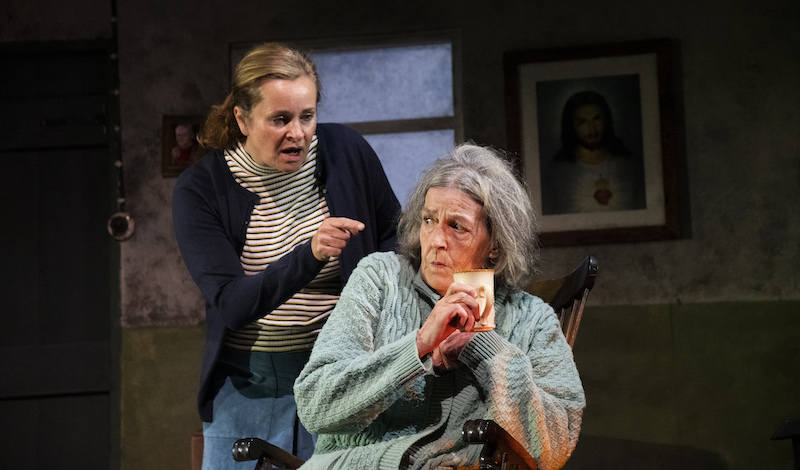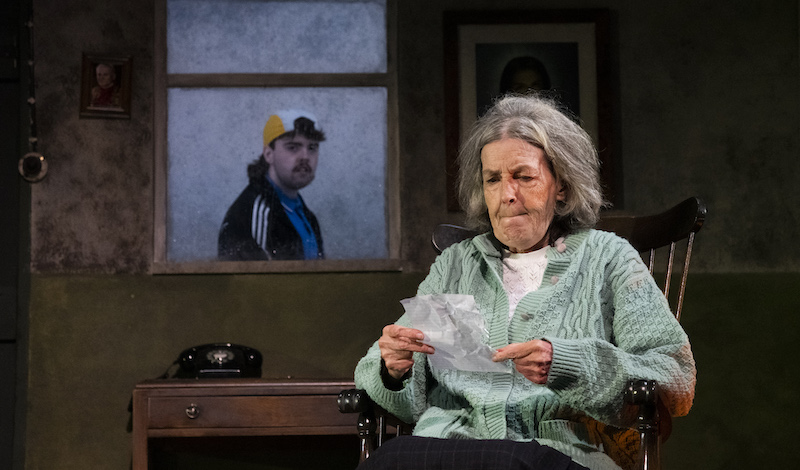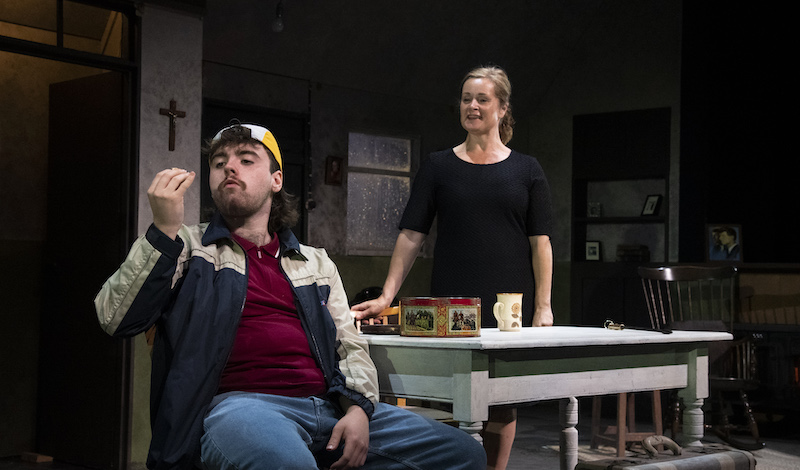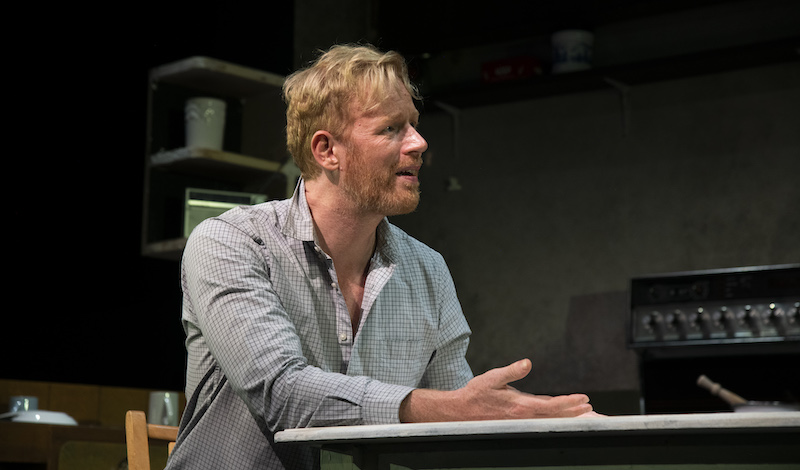The Beauty Queen of Leenane
★★★★☆ Faithful revival
Traverse: Wed 19 – Sat 22 Oct 2022
Review by Tom Ralphs
Rapture Theatre go back to Martin McDonagh’s first play, The Beauty Queen of Leenane, for their first major production since the death of founding artistic director Michael Emans.
Opening at the Traverse for an all-too short run in the same week that McDonagh’s latest film, The Banshees of Innesheer, opens in UK cinemas, The Beauty Queen of Leenane, is the first in a trilogy of plays set on the Galway coast.
Beauty Queen dives into the toxic relationship between a mother and her daughter living in the small village of the title. At the same time, it takes in far more as it explores the effect of lives not lived, opportunities not taken, and the continued exodus of Irish people looking for different futures in England or America.
There is a feeling of timelessness about the script, with references to the Kennedys, the Birmingham Six and swingball suggesting it could be anytime from the 60s to the 90s. Ken Harrison’s set design is equally timeless but with pictures of Jesus and the Pope alongside simple furnishings and drab walls, the location is clearly rural Ireland.
The opening scene where Maureen Folan (Julie Hale) confronts her mother Mag (Nuala Walsh) about whether she has drunk her Complan, while talking with relish about the her mother’s funeral, looks and sounds like Steptoe and Son – as written by Samuel Beckett.
guilt and loyalty
Walsh’s Mag snarls and shrinks her body, trying to wring every last bit of guilt and loyalty from her long suffering daughter, snuffing out every hope she can have of a brighter future. As Maureen, Hale recounts with vivid glee her fantasies of escaping her fate by ending her mother’s life, revealing the increased desperation she feels, with her only pleasure coming from tormenting her tormentor.
Of course, there is only so far that this can take the play without something to kickstart proceedings. This duly comes with the arrival of Ray Dooley (Ian O’Reilly) delivering an invite to a farewell party for his visiting American uncle.
O’Reilly invests the part with all the recognisable tropes of the simple village eejit that will be familiar to anyone who has ever seen either Father Ted or Mrs Brown’s Boys. His exchanges with Mag bring a lighter tone to the production, contrasting with the darker comedy of Maureen and Mag’s exchanges.
The party invite contains within it the hope for escape that Maureen is longing for, in the form of Ray’s brother Pato (Paul Carroll). Like many of his compatriots, Pato is now working in London on unsafe building sites that don’t have the same allure as their American equivalents.
conflicts
As Pato talks about England being a place and a world he doesn’t want to be in, and Leenane being a place and a world he can’t come back to, the conflicts between family and self, tradition and modernity are perfectly encapsulated. These are characters who are trapped by their lives and their country’s economic and social history.
Carroll’s portrayal of Pato is all the stronger for not showing any real awareness of the cause of his plight. He is driven by everyday hopes and desires for a prosperous future and a happy life. Maureen is his ideal soulmate and he is hers. The mix of his nervousness and her over confidence show that while both of them are in their forties, they are still, in many ways, like children.
The more gentle, reflective tone of the first act inevitably gives way to darker undercurrents in the second, even though it doesn’t go as far in that direction as most of McDonagh’s later works. Initial plot points, concerning a note Pato wants Ray to deliver directly to Maureen, are very heavily signposted and where the note will end up is screamingly obvious. While Walsh and O’Reilly play the humour for all its worth, there is still the feeling that it is a moment prolonged beyond what’s necessary.
terror and surprise
In contrast, director Lyn McAndrew brings out the real terror and surprise in what follows from Mag tripping herself up as she taunts Maureen, inadvertently revealing that she knows more than she is letting on. The vulnerabilities of Mag and the sinister layers that lie behind the put-upon persona of Maureen come to the fore, making us question everything we thought we knew about them individually and as a pair.
The final denouement is well handled, building up to a poignant closing moment that brings out the tragedy at the heart of the play. The play’s impact may have lessened over time, overshadowed by what McDonagh has done since, but the production is a faithful delivery that brings out all the play’s strengths.
Running time: Two hours and 25 minutes (including one interval).
Traverse Theatre, 10 Cambridge Street, EH1 2ED. Phone booking: 0131 228 1404
Wed 19 – Sat 22 October 2022
Evenings: 7.30pm (Traverse 1).
Tickets and details: Book here.
ENDS























Fantastic production!
Well done Lyn McAndrew !